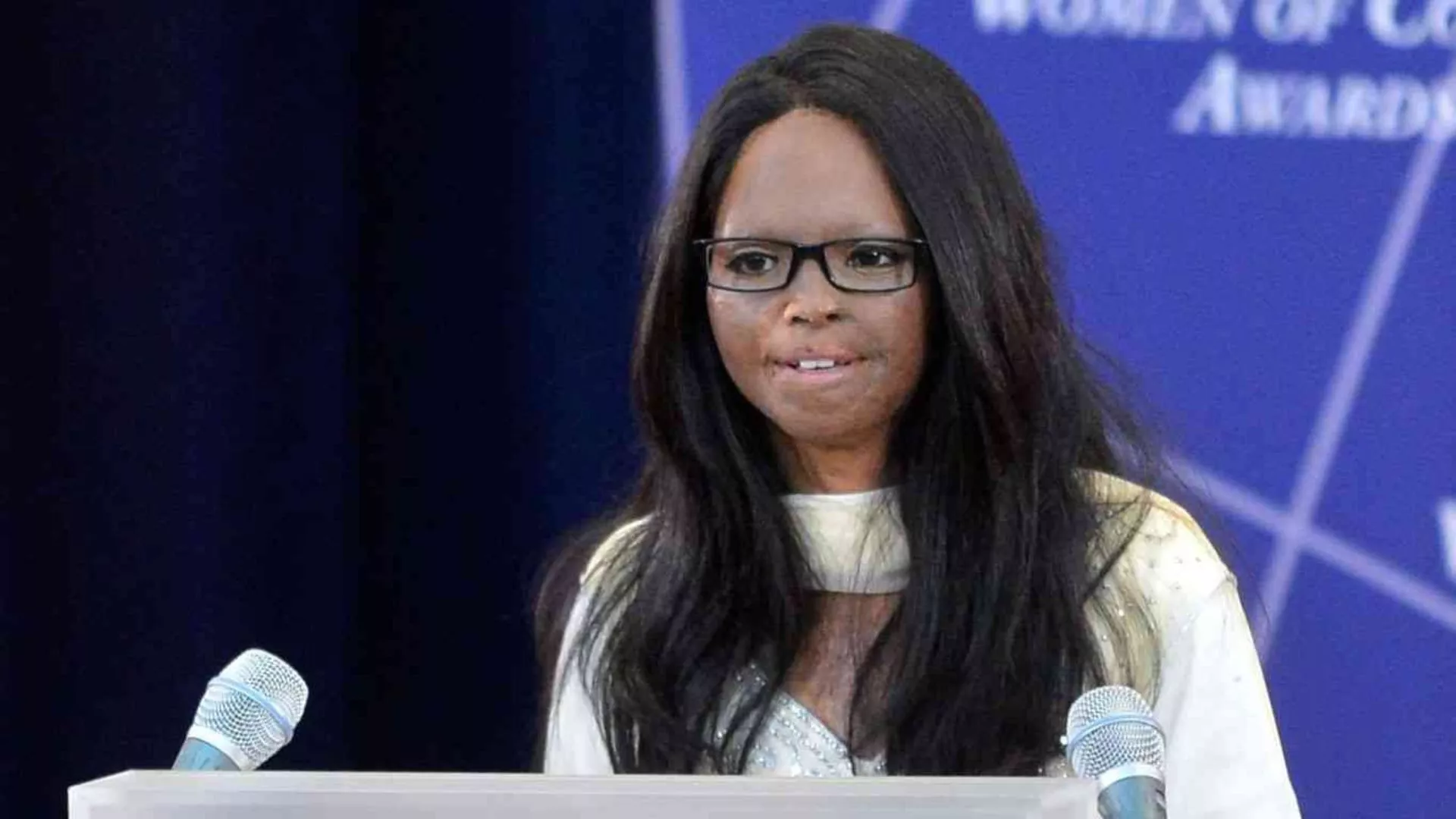Activist Laxmi Agarwal has changed the narrative around acid attacks. She now helps survivors rebuild their lives.
December 2022

Activist and acid-attack survivor Laxmi Agarwal was felicitated with the U.S. State Department’s International Women of Courage Award at Washington, D.C., in 2014.
“Why does someone throw acid on a person? Why aim for the face? It is because they believe destroying the face will destroy the person. But when we advocate for ourselves, we tell the attacker that this was never going to be our fate,” says Laxmi Agarwal, an acid attack survivor, co-founder of The Laxmi Foundation, and recipient of the U.S. State Department’s International Women of Courage Award in 2014.
Through her NGO, The Laxmi Foundation, Agarwal wants attackers and survivors to know that though an acid attack is a heinous crime meant to disempower, it cannot destroy dreams.
“We work on their rehabilitation and support them in every way, so they can be self-sufficient,” says Agarwal. The foundation, she explains, is focused on helping survivors rebuild their confidence and pursue their aspirations.
Giving dreams a leg-up
One such success story is that of Prince Sahu, a 31-year-old male acid attack survivor. Before the attack, he was a freelance model. “I used to often model for my friends who owned clothing shops,” he says. But one such friendship turned sour and Sahu was attacked in 2021. Sahu now works as a ground staff member with a commercial airline group in New Delhi.
Agarwal, citing her own example, says her aspirations have remained the same to a large extent before and after the attack. A trained singer, Agarwal has also released a music video on YouTube, written by rap artist H-Tee. “I loved dressing up before, and I still do now,” she smiles.
Creating a support system
Having been through the painful process of surgeries and recoveries after an acid attack herself, Agarwal can anticipate the needs of survivors and their families throughout the process of rehabilitation. Most importantly, she says, the foundation offers a safe space to the survivors who come to Delhi for their treatment. “Their biggest fear is infection,” explains Agarwal. “Recovery is delicate. So, we maintain hygiene here. Plus, survivors undergo a lot of mental and emotional stress. They come with their families who are also stressed. We offer counseling to survivors and accompanying family members too.”
Agarwal says the winter season is very busy for the foundation. “Recovery is faster in cooler weather, so many survivors plan treatments at this time,” she explains.
The foundation’s shelter is a three-bedroom, bath and kitchen setup. The apartment is furnished with beds and a fully-functional kitchen. “We stock up the kitchen for survivors and their families, so that they don’t have to worry about food here,” she explains. The walls of the apartment are lined with Agarwal’s photographs and of other successful survivors.
Agarwal notes survivors often have to go through multiple, painful surgeries to gain full function of their bodies. For example, though Sahu is now employed one year after the attack, he needs to undergo further treatment in his right eye, which was severely affected. The Laxmi Foundation helps survivors fund these surgeries.
When she was struggling with the aftermath of the attack herself, Agarwal felt isolated. “I felt like I was the only one in the world who had been attacked,” she says. But one year after the attack, in 2006, she submitted a Public Interest Litigation in the Supreme Court seeking a ban on over-the-counter sale of acid. “It was a very long fight. But I found many survivors like me. And I wondered, for how long will we keep quiet and stay behind closed doors?”
Sixteen years later, Agarwal leads the way for acid attack survivors. “Look at us now,” she says. “We are our own advocates. And we are fighting for our rights.”
COMMENTS